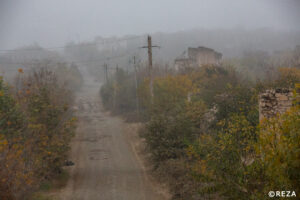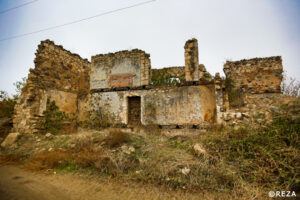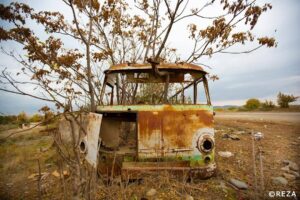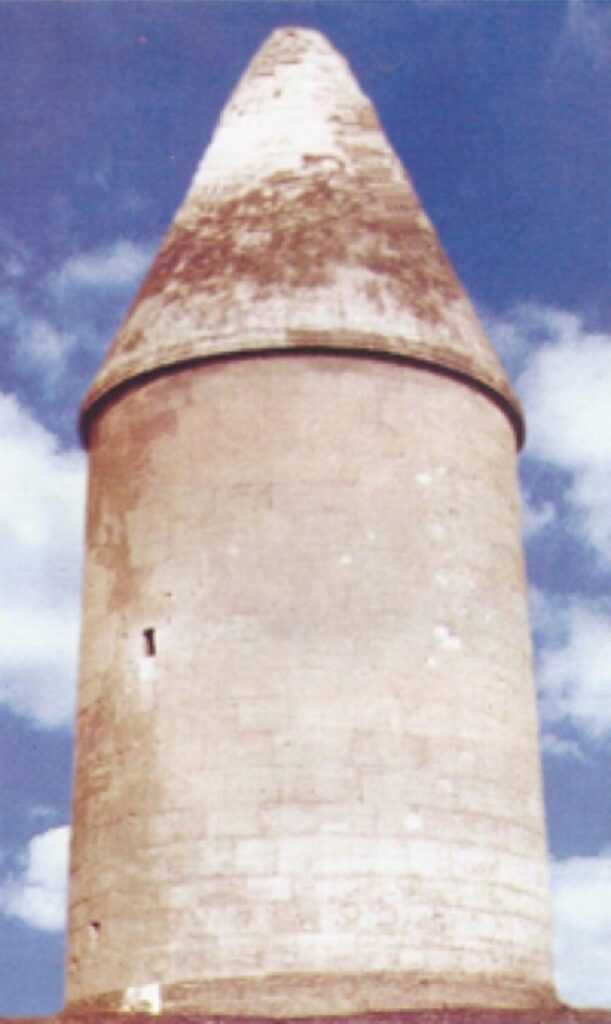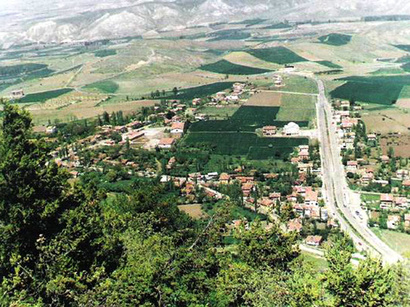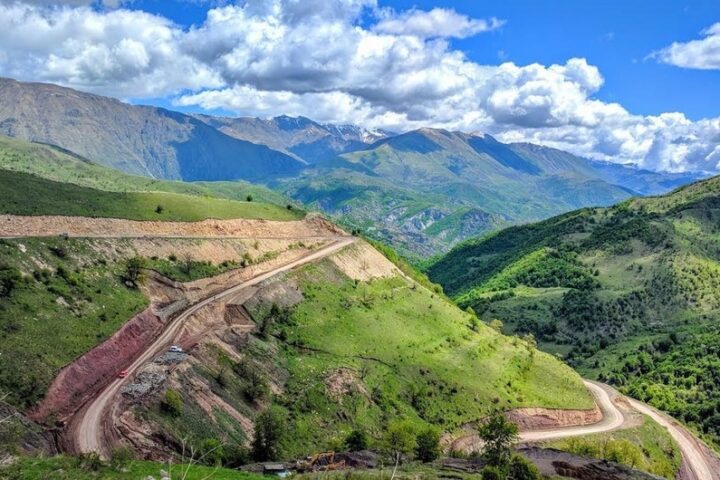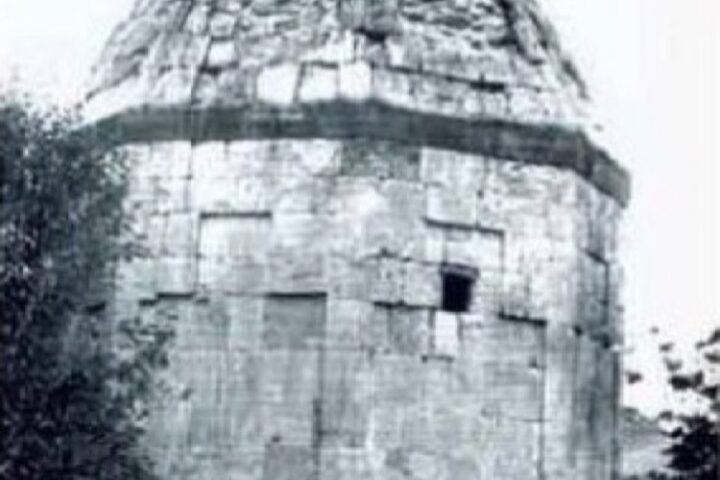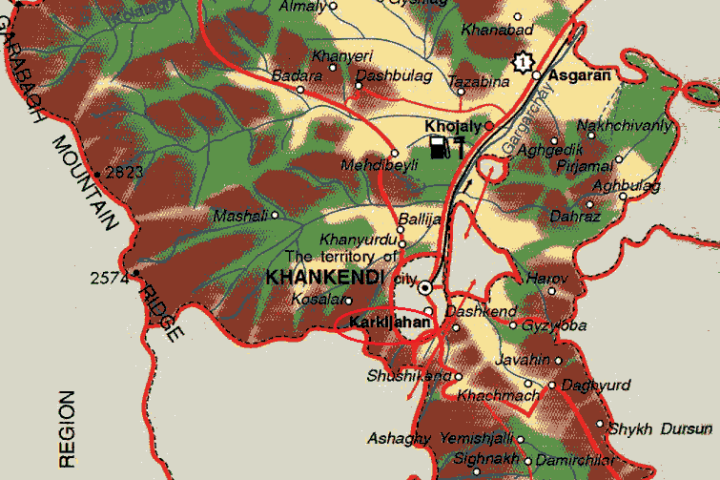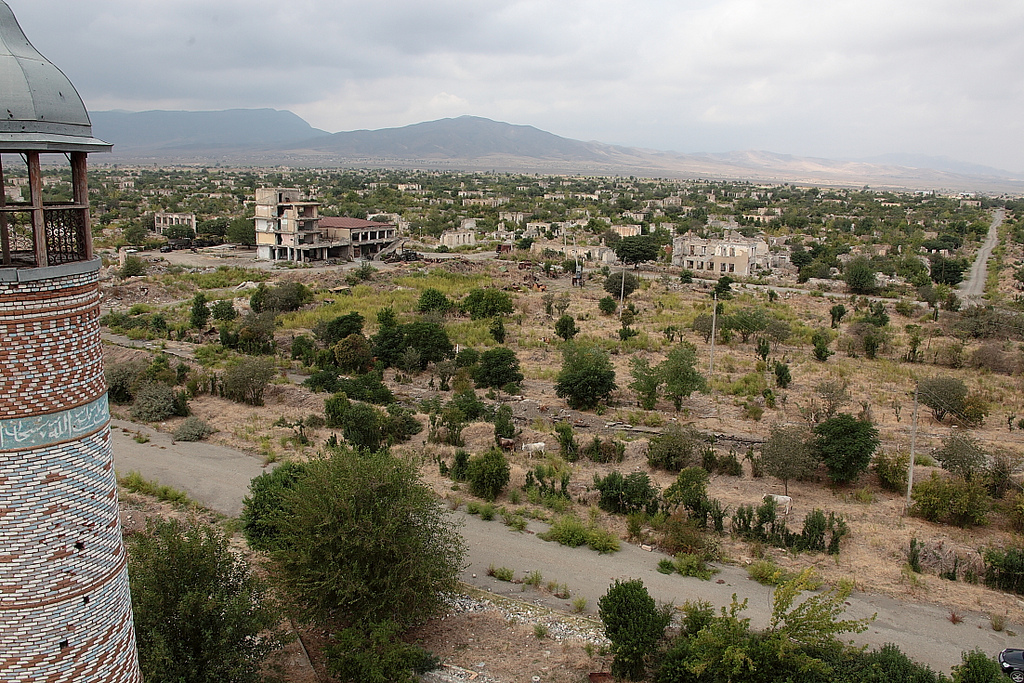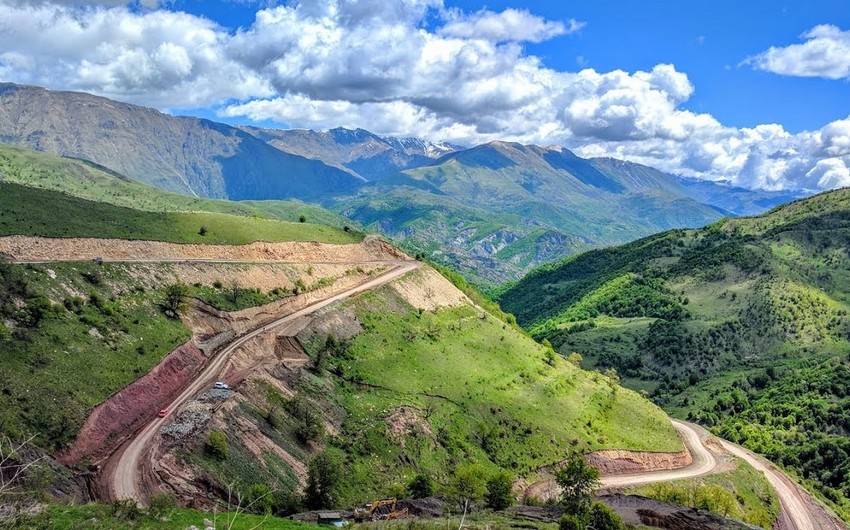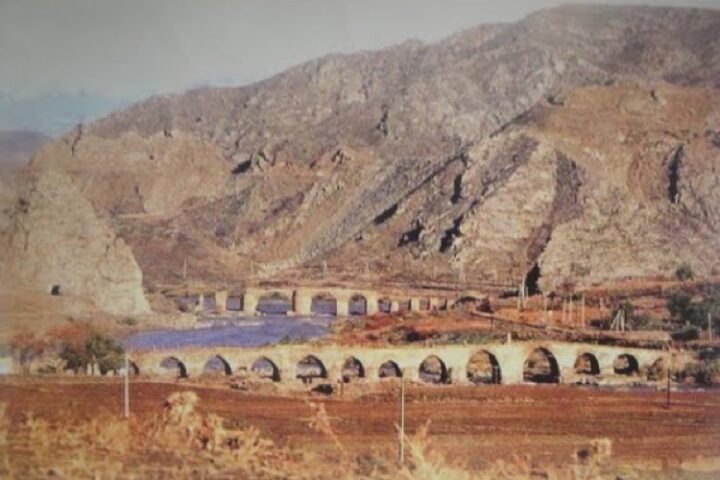Geographical situation
The region of Fuzuli is the administrative region of the Republic of Azerbaijan. It neighbors with the Islamic Republic of Iran in the south-eastern part. Its area is 1390 km2.
The central town is the city of Fuzuli. The city of Fuzuli and the major part of the region have been under the Armenian occupation since August 23,1993.
The region covers the following districts and villages: the city of Fuzuli; the city of Horadiz, 16 newly constructed settlements (Gayidish-1, Gayidish-2, Gayidish-3, Gayidish-4, Gayidish-5, Gayidish-6, Gayidish-7, Gayidish-8, Gayidish-9, Gayidish-10, Gayidish-11, Zobuchug-1; Zobuchug-2; Zobuchug-3; Zobuchug-4; Zobuchug-5) and villages of Ahmadbayli; Bala Bahmanli; Araz-Zerghar; Araz Dilagarda; Birinji Mahmudlu; Ikinji Mahmudlu; Ahmadalylar; Gazakhlar; Mirzenaghyly; Ashaghy Kurdmahmudlu; Yukhary Kurdmahmudlu; Alkhanly; Boyuk Bahmanli; Kerimbayli; Arayatyly; Baby; Mollamaharramli; Horadiz; Ashaghy Seyidahmadli; Shukurbayli; Yukhary Seyidahmadli; Gorgan; Shekerchik; Shykhly; Ghejegozlu; Uchunchu Mahmudlu; Ashaghy Veysalli; Yukhary Veysalli; Sarajyg; Yukhary Refedinli; Gorazilli; Garadagly; Yukhary Guzlek; Khatynbulag; Gachar; Divanalylar; Garakhanbayli; Merdinli; Gochahmadli; Arysh; Mollavali; Dedeli; Ishygly; Gargabazar; Yal Pirahmadli; Yukhary Yaglyvend; Garamammadli, Dilagarda; Gobu Dilagarda; Garvand; Yukhary Abdurrahmanly; Kurdler; Ashaghy Abdurrahmanly; Dordchinar; Seyidmahmudlu; Alasgarli; Huseynbeyli; Pirahmadli; Musabeyli; Mandyly; Ashaghy Guzlek; Ashaghy Refedinli; Uchbulag; Juvarly; Khalafsha; Chimen; Yukhary Aybasanly; Dovletyarly; Ashaghy Yaglyvend; Garakollu; Govshadly; Hajyly; Mirzachamally; Zergar; Ghyzylghyshlag; Agbashly; Murtuzalylar; Hungutlu; Serdeli; Shykhymly; Govshatly.
Economic characteristics
The basis of the economy of the regon is agriculture, specialised in vine growing, vegetable growing, grain growing and cattle breeding. There was dairy, steel-concrete plant, quarry, gin, vine and grain processing plants.
Fuzuli town was occupied by armenian military troops on August 18, 1993. Now on the non-occupied 22 villages about 50 thousand people live.
Socio-economic conclusions of the occupation
As of August 1993:
| Territory (partially occupied) | 1,386 sq.km |
| Families | 22,110 |
| Population | 98,958 (118,900 in 2011) |
| Killed | 669 persons |
| Handicapped | 1,450 persons |
| Orphaned | 155 persons |
Destruction and losses
| Villages and settlements | 77 |
| Dwelling houses | 15,213 |
| Industrial and construction establishments | 33 |
| Service establishments | 786 |
| Schools | 117 |
| Health care centres | 43 |
| Cultural establishments | 166 |
| Farms | 50 |
Cultural monuments
The people of this land highly appreciate and revere the memory and legacy of the great poet Fuzuli. There are a lot of historical and archeological monuments in the region such as the unique Garghabazar caravanserai (1681) and Hadji Giyaseddin mosque (1683).
Garghabazar caravanserai
Garghabazar caravanserai was built in 1681 at the hillside, in the centre of Garghabazar village of Fizuli district. Caravanserai building is 23.7 metres wide, 34.7 metres in length. Garghabazar caravanserai is a single storeyed multi-yarded asymmetric caravanserai with arched rooms like corridors. The caravanserai was named Garghabazar after the village it was built in. Sometimes this historical monument is also called Shah Abbas caravanserai. The architect of the monument is unknown.
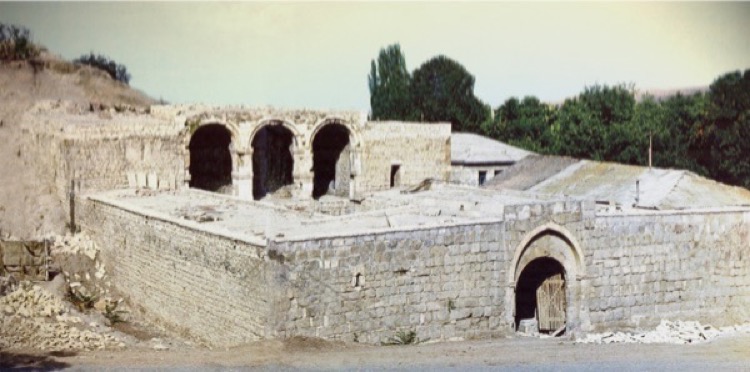
Concerning its architectural style, Garghabazar caravanserai bears resemblance to the architectural traditions of the Albanian period. There are two large slabs of stone on the right and left sides of entrance, in front of the guard rooms. Apparently the guards used to stand on those stones and watch the loads of the caravans. Caravanserai is considered an immovable historical monument of Azerbaijan.
After the occupation of Garghabazar village, the Armenians transformed this historical and architectural monument into a cowshed.
Haji Alakbar Mosque
Haji Alakbar Mosque in Fizuli city is one of the first works of Karbalayi Safikhan Garabaghi. A stone inscription bearing the words “This is the Architect Karbalayi Safikhan Garabaghi’s work” was found at the entrance door. Date of construction of the Mosque – the year 1307 Hegira calendar was also noted on inscription. This date equals 1889-1890 AD
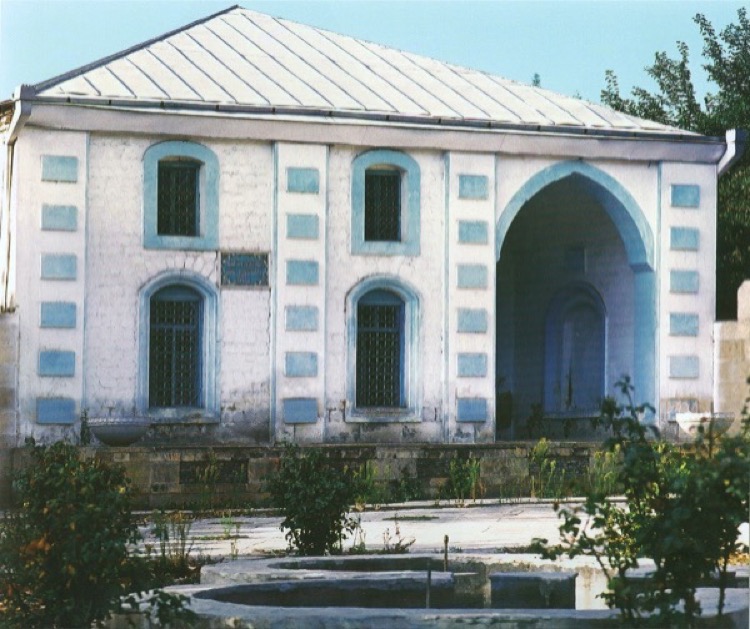
Haji Alakbar Mosque, 1889, Fuzuli 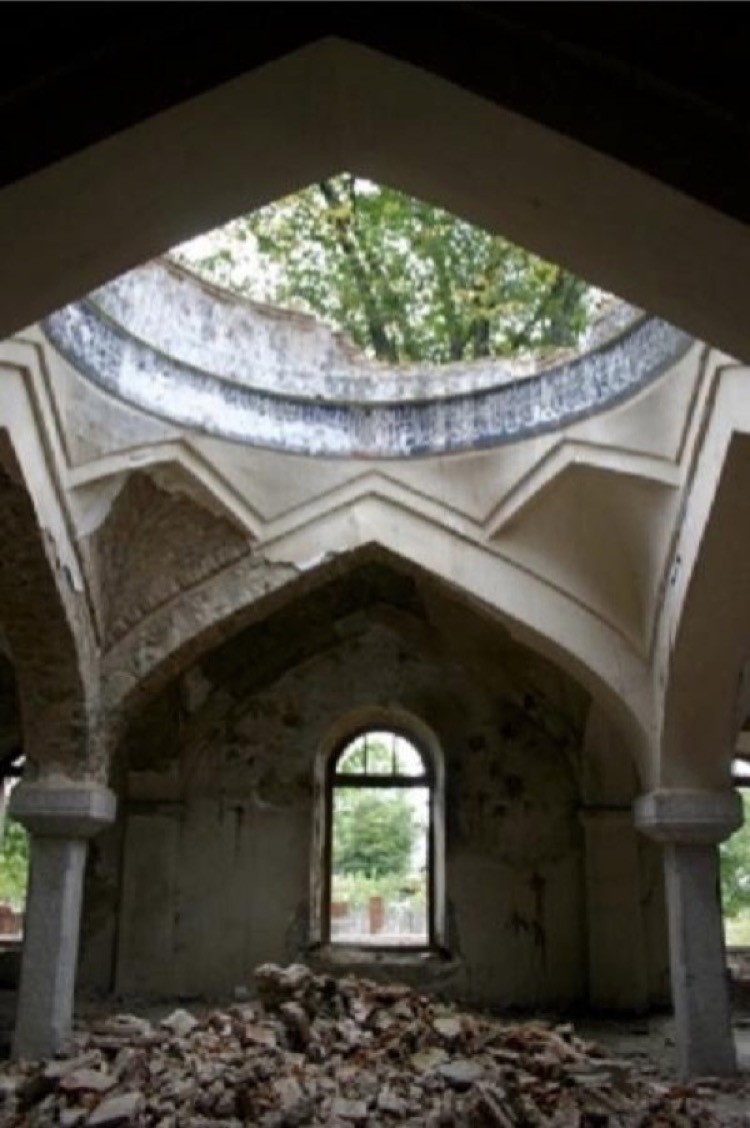
Haji Alakbar Mosque during occupation in 1990s, Fuzuli 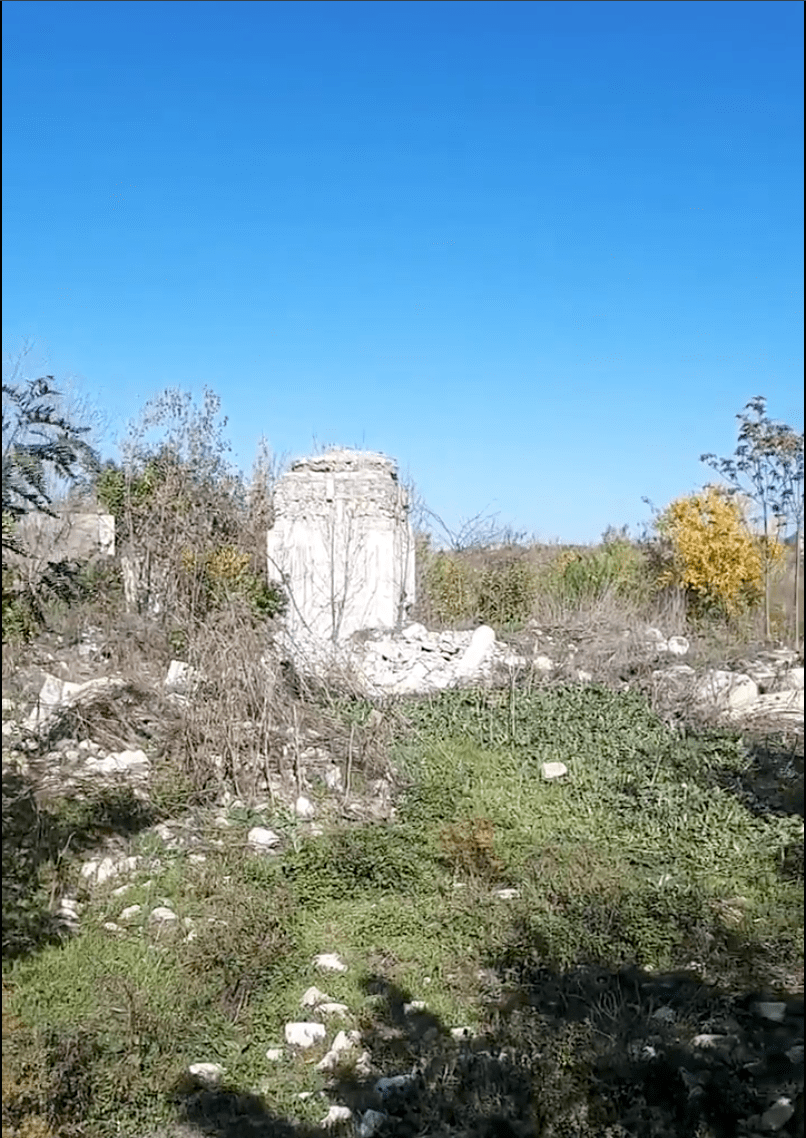
Haji Alakbar Mosque ruins, 2020, Fuzuli 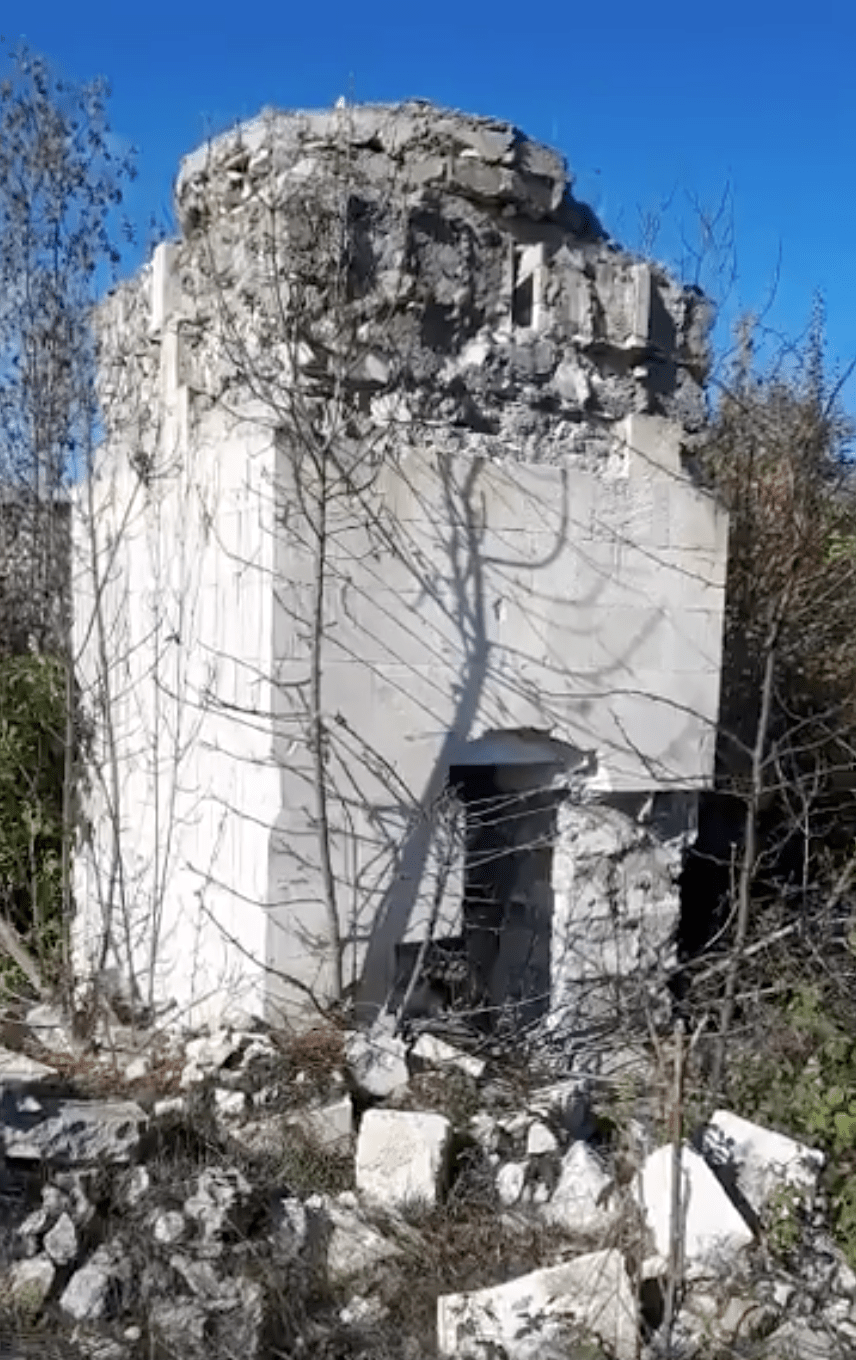
Haji Alakbar Mosque ruins, 2020, Fuzuli
This place of worship was named Haji Alakbar Mosque after the philanthropist Haji Alakbar which allocated funds and invited masters from Shusha for construction of the mosque. As a token of honour and respect for his charitable deeds the local people buried Haji Alakbar bey opposite the first of the left windows of the mosque constructed by himself.
The mosque was completely destroyed during the occupation.
Mosque in Garghabazar village
One of the oldest mosques of Karabakh is situated in Garghabazar village of Fizuli region. Popularly known as Shah Abbas Mosque among the people, this mosque was described in scientific literature as Haji Qiyaseddin Mosque.
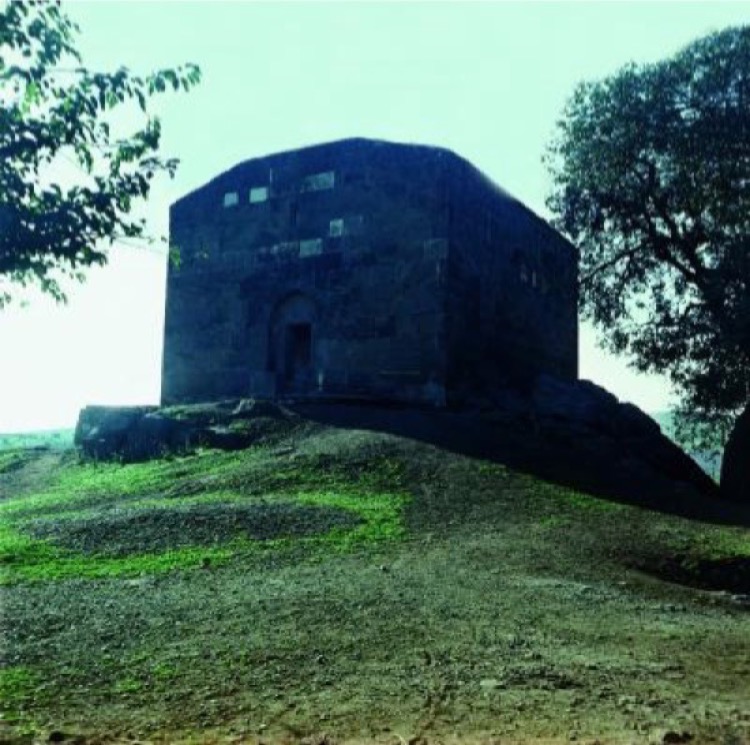
Because the door of the mosque bears an inscription as “This mosque was constructed by Haji Qiyaseddin, the kind creature of Great Allah, in Hegira 1095”. This date corresponds to AD 1683-1684.
Haji Qiyaseddin Mosque does not have a veranda. It was completely constructed of the local stone and consisted of one hall. The roof is in the arched ceiling form. Wooden materials were used nowhere except the entrance door. The mosque was built on the slab rock hill in the centre of the village.
As a result of the occupation of the Fizuli region in 1993, Haji Qiyaseddin Mosque was demolished by Armenian invaders.
Other monuments
Three mausoleums – the Akhmedalilar mausoleum, the Babids mausoleum and the Mir Ali mausoleum are the most remarkable sights of the region.



